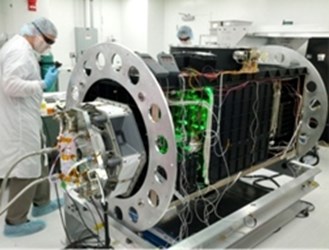Fibertek Delivers Technology For NASA Earth Science Mission

Fibertek has delivered to Goddard Space Flight Center (GSFC) state-of-the-art light detection and ranging (lidar) systems electronics and advanced laser technology for NASA’s Cloud Aerosol Transport System (CATS) payload on an upcoming International Space Station (ISS) mission. The CATS payload is scheduled to launch September 12, 2014 on the SpaceX #5 mission, an ISS commercial resupply flight from Cape Canaveral.
Herndon, VA (PRWEB) - Fibertek announced today that it has delivered to Goddard Space Flight Center (GSFC) state-of-the-art light detection and ranging (lidar) systems electronics and advanced laser technology for NASA’s Cloud-Aerosol Transport System (CATS) payload on an upcoming International Space Station (ISS) mission. The CATS payload is scheduled to launch September 12, 2014 on the SpaceX #5 mission, an ISS commercial resupply flight from Cape Canaveral. The CATS instrument is a Japanese Experimental Module – Exposed Facility (JEM-EF) payload.
NASA’s CATS is a technology demonstration mission led by Dr. Matthew McGill, the GSFC Principal Investigator. The science objective is to extend satellite observations of small particles in the atmosphere from volcanoes, air pollution, dust, and smoke. These aerosol particles pose human health risks at ground level and influence global climate through their impact on cloud cover and solar radiation in Earth’s atmosphere.
Fibertek has delivered the lidar system electronics, including payload power supplies, ISS communications hardware and software interface, lidar data collection system, system safety hardware, payload controller, photon counting electronics, and state-of-the-art three-wavelength lasers—ultraviolet (UV), visible, and infrared (IR)—for the mission. Fibertek is also providing the ground control station software and user interface. Fibertek tested the system using NASA’s Johnson Space Flight Center simulator and the Marshall Center’s TreK payload interface system.
For more information on NASA’s overall Earth Science missions, see: NASA Set for a Big Year in Earth Scienceand Station Role in Earth Science Growing.
More information about the ISS CATS Instrument.
Source: PRWeb
View original release here: http://www.prweb.com/releases/2014/03/prweb11641751.htm
